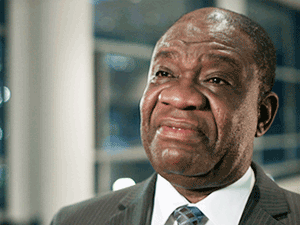Editor, Politics/Features, EMEKA ALEX DURU, looks at incidences of pipeline vandalism in the power sector and efforts of the government in checking the menace.
A major approach the Minister of Power, Professor Chinedu Nebo, applied in his schedule on appointment was that of optimism in going about his duties. Even with the daunting task of superintending the ministry that had literally rubbished the reputation of most of his predecessors on account of power problem in the land, Nebo, a clergy in the Anglican Communion, was not deterred. Rather, he had hoped to triumph at the end of the day.
Of course, given his antecedents in repositioning University of Nigeria, Nsukka (UNN), as well as laying solid foundation for Federal University, Oye-Ekiti, where he variously served as Vice Chancellor, not many doubted the minister. Even on the job, the successful handling of the privatisation exercise in the sector seemed to be in line with his pledge of exorcising the demons working against power supply in record time.
The ministry, he insists, has not dropped the agenda of ensuring uninterruptible power supply to Nigerians. In this regard, his aides recall that efforts had been made to strengthen the transmission lines, to evacuate generated power from just 270 kilometres to well over 650 kilometres, while tripling the number of injection sub-stations across the country.
They also spoke of the strengthening and upgrading of critical infrastructure as a result of the huge investment induced by the president which, according to them, has also led to a drastic reduction of the technical losses witnessed in the transmission and distribution of power.
In the distribution chain, the government, it was gathered, has also provided the needed support for the distribution companies to rev up their capacity in distributing transmitted power.
To this extent, transformers were said to have been acquired and distributed to them. In addition, an approval was reportedly made recently for the purchase of one million meters for distribution to consumers, to reduce the crisis associated with inadequate metering in the distribution value chain.
But while the Power Ministry labours to tackle some regular obstacles in the exercise, it is being confronted by a new wave of monster – pipeline vandalism. The ugly trend had in the past been more pronounced in the oil sector where it had worked against smooth supply of petroleum products and in the process accounting for product scarcity.
However, by the last count, impact of the unwholesome activities of the vandals are known to have extended to electricity supply, resulting in the current epileptic power regime in some parts of the country.
There is, in fact, the fear that unless drastic measures are applied, the situation may not improve soon.
Ministry officials blame many factors for the sad development. A source that pleaded anonymity told TheNiche that it is only in the present dispensation that power generation has exceeded 2,800 megawatts (mw) in the country’s 50 years of electricity enterprise. He, however, lamented that what worries the minister most is that the ugly act of vandalism usually takes place whenever power generation threshold hits 5,500mw.
“If the 5,500mw threshold is allowed to stay, some consumers would be guaranteed 18 hours of uninterrupted power supply, while some may even enjoy up to 22-hour service. This is why it baffles us that some unscrupulous elements would choose to deny their fellow countrymen this opportunity, simply because of their selfish interests,” he cried.
The minister has equally been expressing similar concern. He has particularly been crying out about the dangers vandalism has constituted to the generation of electricity and overall realisation of the power sector dream of the Jonathan administration.
According to Nebo, “The major problem is the oil and gas pipelines. People actually go to gas pipelines and blow them up, not to get anything but to punish Nigerians. Are they not demons? So, I am doing everything to drive them out, using all kinds of legal, military and prayers, because some of them are so demon-possessed. We have to exorcise them.”
He remarked that those who carry out the nefarious acts are really causing grave harm to the economy. “They are bleeding the Nigerian economy. The one of the gas pipeline is horrible because they are not doing it for money-making. It is sabotage. They go there, target spots, very remote places along the entire line of gas pipeline, and use dynamite, detonate these dynamites, and blow up gas pipelines. At the end of the day, it takes months upon months to repair these things. The more you repair them, the more you discover more holes.”
Concerned Nigerians share similar pains with the minister. Solomon Chidi, a resident of Satellite Town, Oriade Local Council Development Area, Lagos, who runs a relaxation joint in the area, lamented the impact of the activities of vandals on his business in the last two months.
“It had not been this bad. Since the last two months, we have not had regular power supply in this area. Our inquiry at the Eko Electricity Distribution District in our area indicated that vandals had tampered with our transformer as well as other vital links in electricity supply chain. We have been forced, consequently, to rely on power generators that obviously have limited capacities in powering our facilities. The major result is that we cannot meet the demands of our customers, hence some have stopped patronising us,” he said. He warned that with the situation, many would be forced out of business and may resort to crime.
Other residents and business operators in the area, count similar losses. The minister frowned at a situation where the vandals cannibalise transformers in search of coppers which they often sell at a paltry N10,000 and in the process, throw an entire neighbourhood into darkness.
He said: “Some young men go and cannibalise transformers, steal copper which they sell as scraps for N10,000 and knock out more than one million people from power for a month and they don’t care. At the end of the day, it costs the distribution company N27 million to fix what people destroyed.”
Given the ugly trend and other inactions in the industry, 82.4 million Nigerians account for 1.2 billion people without access to electricity worldwide, according to a 2013 report released by the World Bank.
But even with the frightening statistics, Permanent Secretary of the Ministry of Power, Godknows Igali, insists that all hopes are not lost in the sector. At a forum in Abuja, he had assured that the country had entered a time in its history that nobody can take its hands back in power supply.
“Nigeria will no longer be dark. Our private sector has shown its energy in other sectors. Mr. President, with courage, has said we can do it as well in the power sector and has started this process of transformation. The only thing we can do is to support this whole idea and the courageous steps of the president to transform this country. We must ensure that these facilities are safe and that we stop these saboteurs by exposing them,” he charged.














